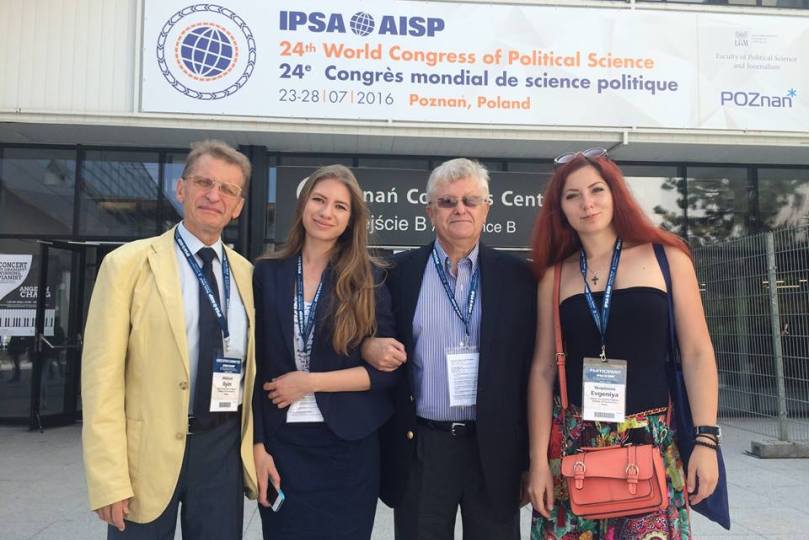
Research & Expertise

On October 10, the HSE School of Public Administration hosted its monthly discussion series. This month’s event is entitled ‘Stress Test for Public Finances – Policy-Responses to the Financial and Economic Crisis in the OECD’ and was led by Prof. Dr. Uwe Wagschal of the University of Freiburg (Germany). Professor Wagschal's talk focused on the consequences of massive monetary and fiscal stimulus for the public purse and will compare the fiscal packages in 28 OECD-countries aimed at combating an economic downturn following the collapse of Lehman Brothers in 2008.
On September 11-16 the 9th International Conference on Social Science Methodology was held in Leicester, UK. The event was organised by the International Sociological Associaton (ISA) Research Committee on Logic and Methodology (RC33). The conference takes place every four years and brings together over 500 researchers from Europe, North America and South East Asia. Staff members of the School of Sociology - Inna Devyatko, Aigul Mavletova, Olga Savinskaya and Tatiana Khavenson - took part in the event.
Monika Wohlrab-Sahr, Professor of Cultural Sociology at the University of Leipzig in Germany, began her involvement with HSE when she started working with two young scholars – Christian Fröhlich, an Assistant Professor at HSE and a former PhD student of hers, and Rafael Mrowczynski, who has served as a DAAD-lecturer at HSE. Ahead of her upcoming visit to Moscow, where she will present her work on ‘Multiple Secularities’ and give a seminar on Qualitative Methods, Professor Wohlrab-Sahr spoke with the HSE news service about her work, her academic interests, and her views on the key attributes researchers need today.

This summer Helsinki hosted the large annual conference of the European Association for the Study of Religions. Iliyana Angelova (University of Oxford / University of Tuebingen) and Ksenia Medvedeva (HSE) share their impressions from the event and reflect on their experiences of having convened a session at an international conference of such a scale.
On June 17-18, Venice hosted the International Conference ‘State and Political Discourse in Russia’, organized by the Italian Foundation for Reset Dialogues on Civilizations (ResetDOC). The HSE was one of the co-organizers of the conference, together with London School of Economics and Political Science, Davis Center for Russian and Eurasian Studies (Harvard University), and others.
Professor Graeme Gill from University of Sydney has conducted the seminar on ‘Symbolic politics and social constructions of past’ at HSE Moscow. He presented the paper ‘Symbols and Post-Communism: an inherent ambiguity?’ and talked about how the transformation of communist regimes created an imperative for the development of a new system of symbols to legitimise the new status quo.
Three HSE journals — Public Administration Issues (Voprosy Gosudarstvennogo i Munitsypal’nogo Upravleniya), Psychology. Journal of the Higher School of Economics (Psychologiya. Zhurnal Vysshey Shkoly Economiki) and The Russian Sociological Review (Sociologicheskoye Obozreniye) — are to be indexed by Scopus. The editorial boards of these journals have already been officially notified by Elsevier.

